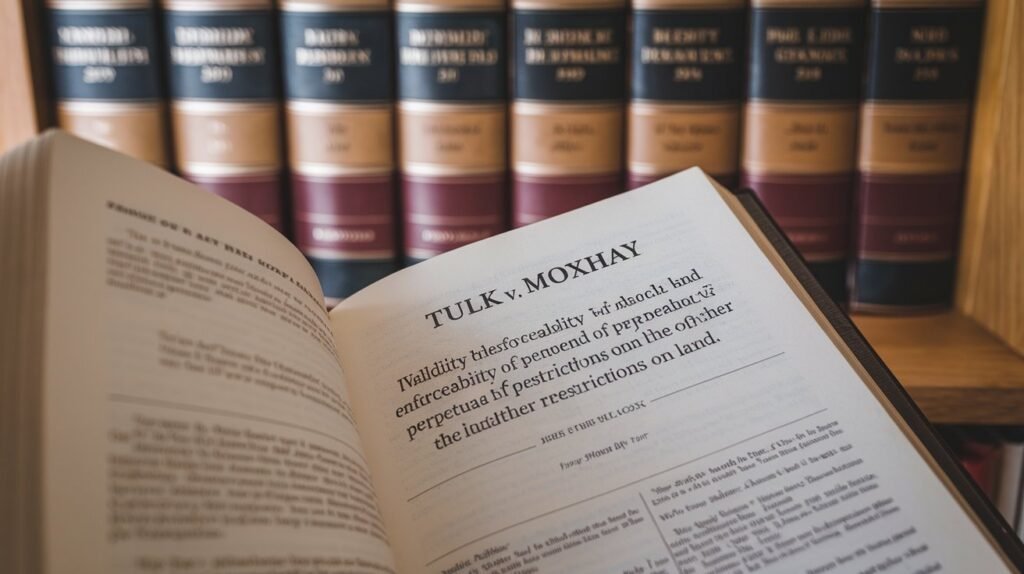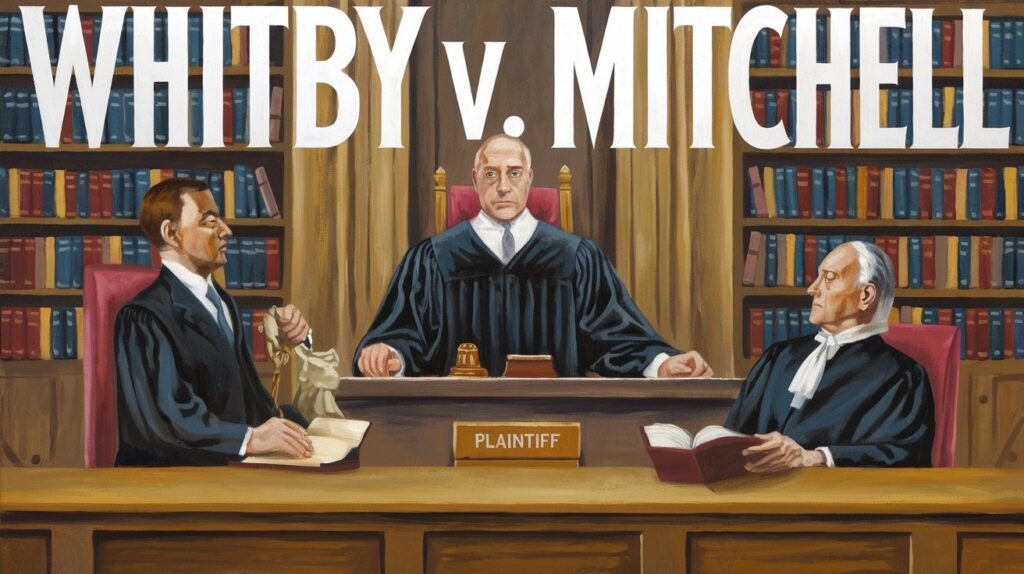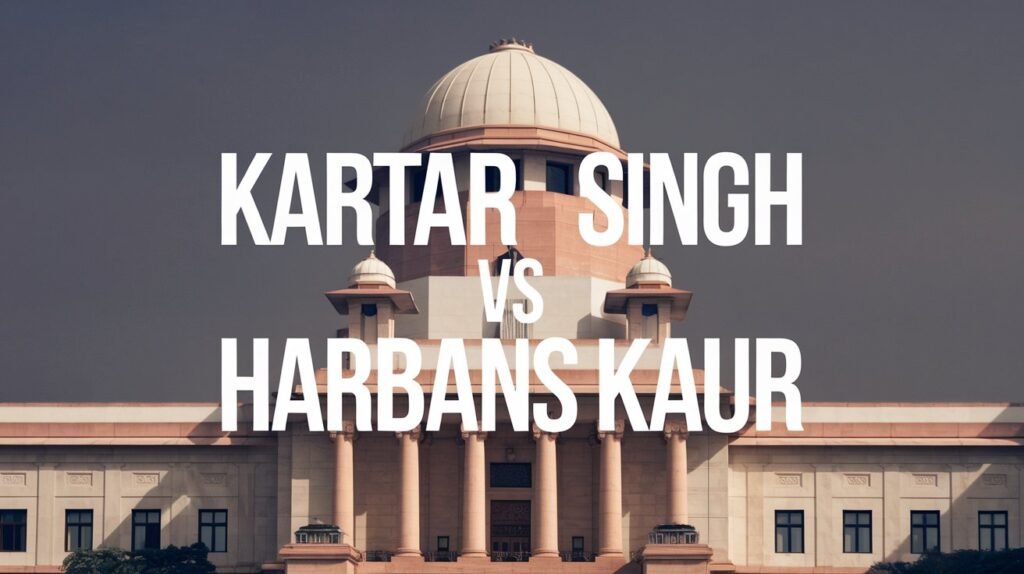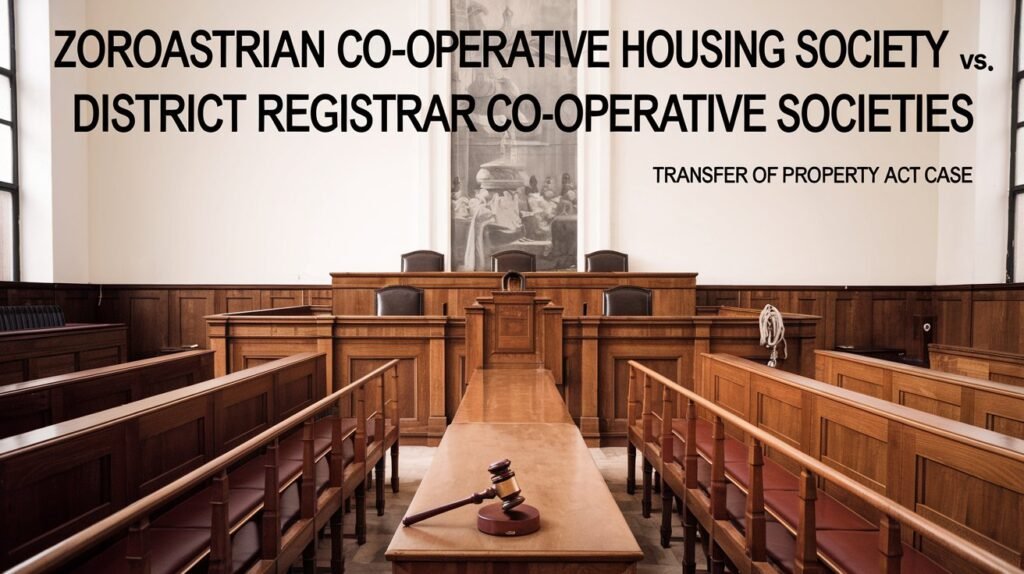Kartar Singh Vs. Harbans Kaur 1994 (Case Summary)
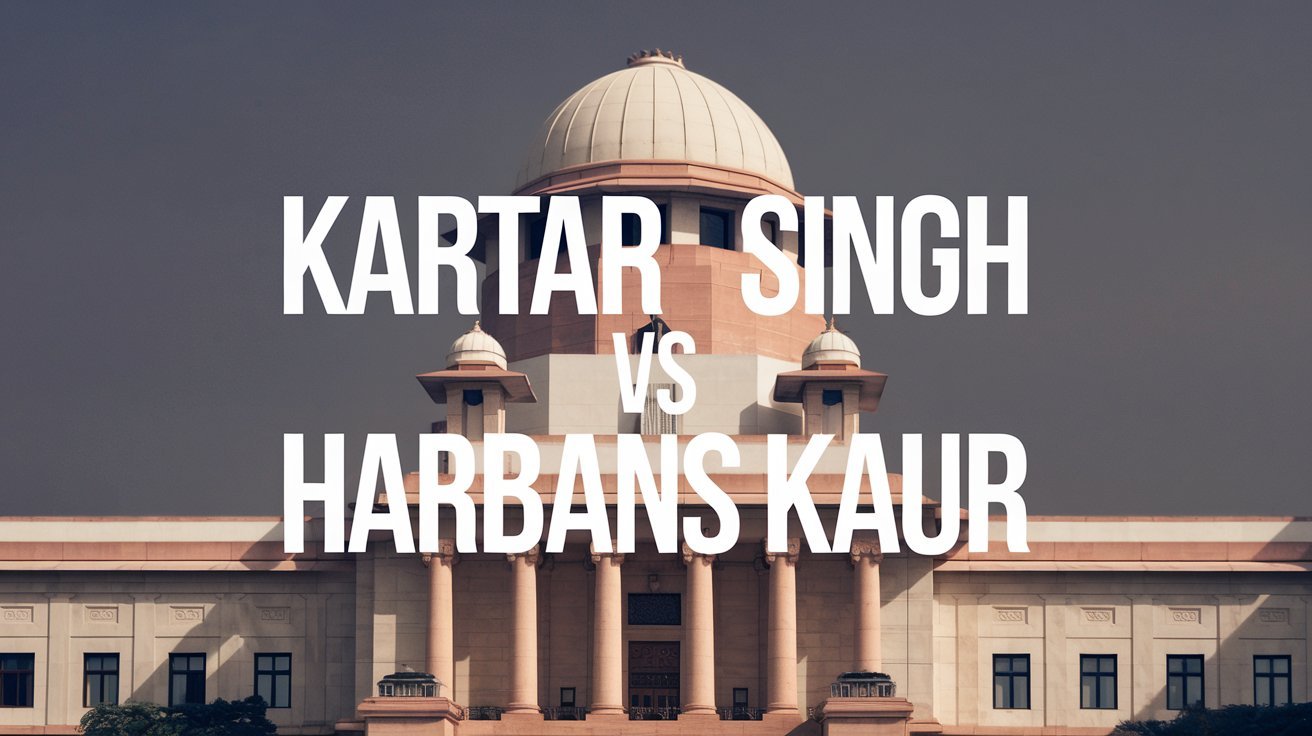
In this case the Hon’ble Supreme Court of India laid down the essential prerequisites which must be fulfilled to attract Section 43 of the Transfer of Property Act, of 1882. The Court also held that the transferee must make all reasonable and diligent enquiries regarding the capacity of the transferor and the necessity to alienate the estate of the minor.
Table of Contents
ToggleFacts of Kartar Singh Vs. Harbans Kaur
- Mrs. Harbans Kaur (Respondent) executed a sale deed in favour of Appellant (Kartar Singh) in respect of a land. She transferred her share of property as well as the share of her minor son as his guardian.
- Minor son on attaining majority filed a suit for declaration that the sale of his share in absence of permission from the District Court, was void under the Guardians and Wards Act and hence cannot be binding on him.
- Decree was passed in favor of the son but, before taking delivery of possession, the son died and the mother being class I heir under S. 6 r/w Sch. to Hindu Succession Act succeeding to the deceased son’s estate.
- Thereafter, the Appellant (Kartar Singh) laid his claim before the Court to claim benefit of Section 43 of the Transfer of Property Act, 1882.
- Kartar Singh contended that even though the mother (Respondent) was unauthorised to transfer the share of her son in the property, after she has succeeded the estate of his deceased son, she is liable to transfer it to Kartar Singh relying on section 43 of the Transfer of Property Act, 1882.
Issues framed
- What conditions should be fulfilled to apply Section 43 of the Transfer of Property Act, 1882?
- Whether the Appellant (Kartar Singh) is entitled to the interest acquired by the Respondent (Harbans Kaur) by operation of Section 43 of the Act?
Judgment of Kartar Singh Vs. Harbans Kaur
The Hon’ble Supreme Court held after duly analysing the facts of the case, discussed the essentials for Section 43 to be Applicable in a case.
The supreme Court held that for application of Section 43 of the Act, two of the following conditions are essential:
- The first essential is that there is a fraudulent or erroneous transfer of an immovable property by a person who is not authorised to do so.
- The second essential is that the where the unauthorised transferor fraudulently or erroneously represents that he is authorised to transfer certain immovable property and consequently transferred the property. It should not be in knowledge of the transferee that the transferor is not authorised to convey such property.
In the present case, Kartar Singh (Appellant) is presumed to have notice of the fact that the mother (harbans Kaur) of the minor son was not authorised to sell the share of the property as her guardian. Hence, after the death of the son, Kartar singh could not claim protection under section 43 of the Transfer of Property Act, as he was never defrauded or there was no erroneous representation.
The court in the judgment stated:
“7.Section 43 feeds its estoppel. The rule of estoppel by deed by the transferor would apply only when the transferee has been misled. The transferee must know or put on notice that the transferor does not possesses the title which he represents that he has. When note in the sale deed had put the appellant on notice of limited right of the mother as guardian, as a reasonable prudent man the appellant is expected to enquire whether on her own the mother as guardian of minor son is competent to alienate the estate of the minor. When such acts were not done the first limb of Section 43 is not satisfied. It is obvious that it may be an erroneous representation and may not be a fraudulent one made by the mother that she is entitled to alienate 2 AIR 1979 Pat 54: 1978 BBCJ 736 the estate of the minor. For the purpose of Section 43 it is not strong material for consideration. But on declaration that the sale is void, in the eye of law the contract is non est to the extent of the share of the minor from its inception.”
Therefore, the appeal was dismissed. Harband Kaur remained the title owner of the share of her son.


